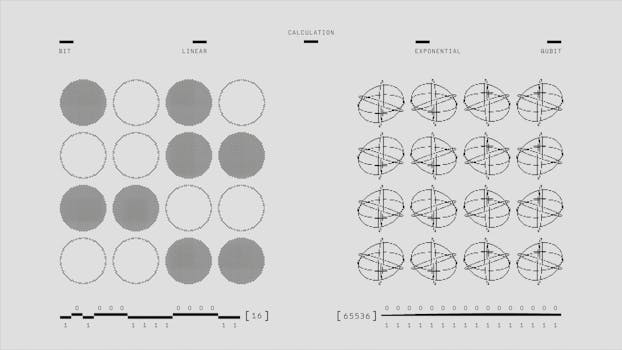
Understanding Quantum Mechanics and its Implications for Reality
Introduction to Quantum Mechanics

Quantum Mechanics, the Focus Keyword of this article, is a branch of physics that studies the behavior of matter and energy at an atomic and subatomic level. At these scales, the classical laws of physics do not apply, and strange, seemingly random phenomena govern the behavior of particles. Understanding quantum mechanics is crucial for understanding the nature of reality itself, as it reveals the underlying principles that govern the behavior of the physical world.
The principles of quantum mechanics were first introduced in the early 20th century by scientists such as Max Planck, Albert Einstein, and Niels Bohr. They discovered that energy comes in discrete packets, or quanta, and that particles can exist in multiple states simultaneously, a phenomenon known as superposition. Additionally, the act of observing a particle can change its behavior, a concept known as the observer effect.
Implications of Quantum Mechanics

The implications of quantum mechanics are far-reaching and profound. One of the most significant implications is the concept of entanglement, where two or more particles become connected in such a way that the state of one particle is instantaneously affected by the state of the other, regardless of the distance between them. This phenomenon has been experimentally confirmed and has potential applications in quantum computing and quantum communication.
Another implication of quantum mechanics is the concept of wave-particle duality, where particles can exhibit both wave-like and particle-like behavior depending on how they are observed. This concept challenges our classical notion of reality, where objects are either waves or particles, but not both.
Quantum Mechanics and Reality

The principles of quantum mechanics have significant implications for our understanding of reality. The concepts of superposition, entanglement, and wave-particle duality suggest that reality is not fixed or determinate, but rather is in a state of constant flux and uncertainty. This understanding of reality is in stark contrast to our classical notions of space and time, where objects have definite positions and trajectories.
The implications of quantum mechanics for our understanding of reality are still being explored and debated by scientists and philosophers. Some interpretations, such as the Copenhagen interpretation, suggest that reality is fundamentally probabilistic, while others, such as the Many-Worlds interpretation, suggest that reality is constantly branching into multiple parallel universes.
Conclusion

In conclusion, quantum mechanics is a fascinating and complex branch of physics that has significant implications for our understanding of reality. The principles of superposition, entanglement, and wave-particle duality challenge our classical notions of space and time and suggest that reality is in a state of constant flux and uncertainty. As we continue to explore and understand the principles of quantum mechanics, we may uncover new and profound insights into the nature of reality itself.






